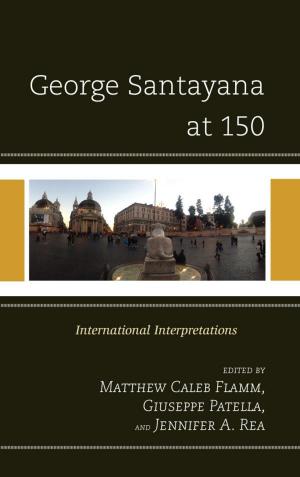Mystifying China's Southwest Ethnic Borderlands
Harmonious Heterotopia
Fiction & Literature, Literary Theory & Criticism, Asian, Far Eastern, Nonfiction, Social & Cultural Studies, Social Science, Anthropology| Author: | Yuqing Yang | ISBN: | 9781498502986 |
| Publisher: | Lexington Books | Publication: | December 28, 2017 |
| Imprint: | Lexington Books | Language: | English |
| Author: | Yuqing Yang |
| ISBN: | 9781498502986 |
| Publisher: | Lexington Books |
| Publication: | December 28, 2017 |
| Imprint: | Lexington Books |
| Language: | English |
The Confucian notion of “Harmony with difference” (he er bu tong) has great political and cultural resonance in contemporary China, which propagates the quest for a pluralist harmony between cultural and ethnic components of society. In an attempt to examine a range of responses to this state-envisioned ideal of accommodating ethnic differences, this book analyzes the literary and cultural discourses that surround three minority regions in Southwest China — Dali, which was once the location of the ancient Nanzhao and Dali Kingdoms; the homeland of the matrilineal Mosuo known as the Country of Women; and the Tibetan areas associated with utopian Shangri-La. This book borrows Foucault’s concept of “heterotopia” to address the contradictory and often simultaneously existing views of the minority region as rich treasure house of tradition and as intractable barrier to modern development which combine to give rise to productive tensions in scholastic and artistic creations. Through reconstituting and performing the myths and legends of or about minority culture, the representations of the three places turn into heterotopias which are posed between the mythical and the real in different ways. Functioning as a self-reflective mirror, they simultaneously offer images of the actual habitats of the ethnic other which have been subject to socialist projects of modernity, and become a viable means by which to exert material effects on the real landscape. Products of a fascination with alternative social spaces, the three mystified lands all contain conceptualizations of harmony — be it spiritual, gender-based or ecological — that are conceivably absent in the imperfect actuality of the Chinese heartland. In conclusion, these aesthetically constructed spaces of the other negotiate and enrich the discourse of “Harmony with difference,” reacting to ethnic politics in PRC history and creating an audience that grows attentive to the traditions of minorities.
The Confucian notion of “Harmony with difference” (he er bu tong) has great political and cultural resonance in contemporary China, which propagates the quest for a pluralist harmony between cultural and ethnic components of society. In an attempt to examine a range of responses to this state-envisioned ideal of accommodating ethnic differences, this book analyzes the literary and cultural discourses that surround three minority regions in Southwest China — Dali, which was once the location of the ancient Nanzhao and Dali Kingdoms; the homeland of the matrilineal Mosuo known as the Country of Women; and the Tibetan areas associated with utopian Shangri-La. This book borrows Foucault’s concept of “heterotopia” to address the contradictory and often simultaneously existing views of the minority region as rich treasure house of tradition and as intractable barrier to modern development which combine to give rise to productive tensions in scholastic and artistic creations. Through reconstituting and performing the myths and legends of or about minority culture, the representations of the three places turn into heterotopias which are posed between the mythical and the real in different ways. Functioning as a self-reflective mirror, they simultaneously offer images of the actual habitats of the ethnic other which have been subject to socialist projects of modernity, and become a viable means by which to exert material effects on the real landscape. Products of a fascination with alternative social spaces, the three mystified lands all contain conceptualizations of harmony — be it spiritual, gender-based or ecological — that are conceivably absent in the imperfect actuality of the Chinese heartland. In conclusion, these aesthetically constructed spaces of the other negotiate and enrich the discourse of “Harmony with difference,” reacting to ethnic politics in PRC history and creating an audience that grows attentive to the traditions of minorities.















